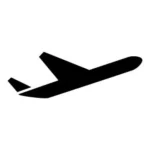Becoming a pilot is an exciting and rewarding career path that offers numerous opportunities for adventure and personal fulfillment. However, the journey to earning a pilot license requires dedication, hard work, and a comprehensive understanding of the necessary steps. This blog post will provide a comprehensive guide to help you navigate the process of obtaining a pilot license, from initial training to certification.
**Eligibility and Requirements**
Before embarking on your pilot training, it's crucial to ensure you meet the eligibility requirements. These typically include:
* Being at least 17 years of age
* Possessing a valid medical certificate
* Completing a background check
* Passing a written examination on aviation knowledge
**Choosing a Flight School**
Selecting the right flight school is paramount to your success. Consider factors such as location, reputation, instructor experience, and aircraft availability when making your choice. Visit the school, meet the instructors, and inquire about their curriculum and training programs.
**Ground School**
Ground school is the foundation of your pilot education. You will learn the principles of aerodynamics, meteorology, navigation, and aircraft systems. This knowledge is essential for safe and efficient flying. Most flight schools offer ground school courses, either in-person or online.
**Flight Training**
Flight training involves practical experience in flying an aircraft. You will start with basic maneuvers, such as takeoffs, landings, and turns. As you progress, you will learn more advanced techniques, including instrument flying and emergency procedures. Flight training requires a significant time commitment, but the hands-on experience is invaluable.
**Solo Flight**
Once you have mastered the basics, you will be ready for your first solo flight. This is a major milestone in your training and a testament to your skills. Solo flights allow you to apply your knowledge and demonstrate your ability to fly an aircraft independently.
**License Examination**
To obtain your pilot license, you must pass a practical test administered by an FAA-designated examiner. The test evaluates your flying skills, knowledge of aircraft systems, and ability to handle emergencies. Preparation is crucial, so ensure you have thoroughly reviewed the material and practiced your maneuvers.
**Additional Ratings and Endorsements**
After obtaining your pilot license, you may consider acquiring additional ratings and endorsements to enhance your capabilities. These include instrument ratings, commercial ratings, and type ratings for specific aircraft. Each rating requires additional training and testing, but it expands your flying privileges and opens up new career opportunities.
**Benefits of a Pilot License**
Earning a pilot license offers numerous benefits, including:
* **Career Opportunities:** Pilots are in high demand in various industries, including airlines, corporate aviation, and government agencies.
* **Personal Freedom:** Flying provides a unique sense of freedom and adventure. You can explore the skies, visit new destinations, and experience the joy of soaring through the air.
* **Enhanced Skills:** Pilot training develops essential skills such as decision-making, problem-solving, and situational awareness, which are valuable in both professional and personal life.
* **Lifelong Hobby:** Flying can be a lifelong hobby that provides years of enjoyment and fulfillment.
